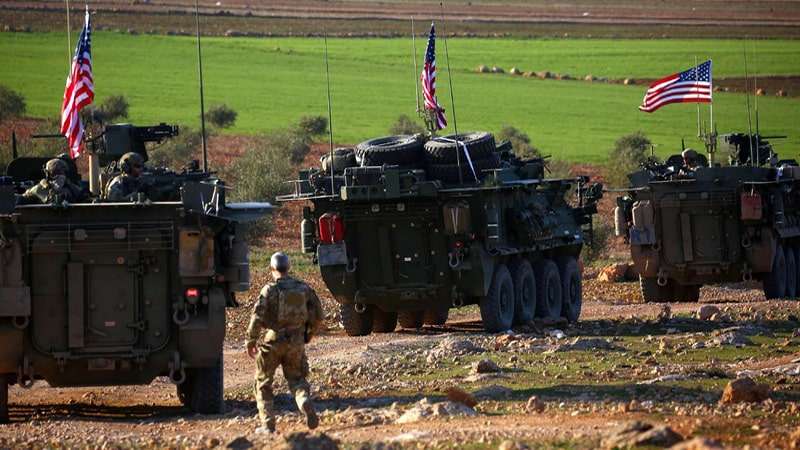WASHINGTON – The United States will withdraw its troops from Syria, a US official told AFP on Wednesday, after President Donald Trump said America has “defeated ISIS” in the war-ravaged country.
The stunning move will have extraordinary geopolitical ramifications and throws into question the fate of US-backed Kurdish fighters who have been tackling Islamic State militants.
“We have defeated ISIS in Syria, my only reason for being there during the Trump Presidency,” the Republican president tweeted.
The US official told AFP that Trump’s decision was finalized Tuesday.
“Full withdrawal, all means all,” the official said when asked if the troops would be pulled from all of Syria. Currently, about 2,000 US forces are in Syria, most of them on a train-and-advise mission to support local forces fighting IS.
The official would not provide a timeline for a withdrawal, saying only: “We will ensure force protection is adequately maintained, but as quickly as possible.”
The Pentagon refused to provide any details.
Echoing Trump, White House spokeswoman Sarah Sanders said IS has been defeated territorially, noting the US-led coalition that includes dozens of nations would continue fighting IS.
“These victories over ISIS in Syria do not signal the end of the Global Coalition or its campaign,” Sanders said in a statement.
“We have started returning United States troops home as we transition to the next phase of this campaign.”
It was not immediately known what effect the troop withdrawal would have on ongoing air operations in Syria. These have largely wound down as IS’s territory has shrunk, but the coalition continues to fly planes and drones over the country.
A large contingent of the main US-backed, anti-IS fighting force in Syria, an alliance known as the Syrian Democratic forces (SDF), is Kurdish and is viewed by Turkey as a “terrorist” group.
Ankara has said it plans to launch an operation against the Kurdish militia, known as the YPG (Kurdish People’s Protection Units).
While the YPG has spearheaded Washington’s fight against IS, US support has strained relations between the NATO allies.
Ties have grown even more fraught since the US set up observation posts in northern Syria close to the border with Turkey to prevent any altercation between Turkish forces and the YPG.
Most US forces are stationed in northern Syria, though a small contingent is based at a garrison in Al-Tanaf, near the Jordanian and Iraqi border.
‘Short-sighted and naive’
The decision to withdraw marks a remarkable development not just for Kurds in Syria, but for long-established US doctrine in the region.
Only last week Brett McGurk, the special envoy to defeat IS, said: “nobody is declaring a mission accomplished.”
“The military objective is the enduring defeat of ISIS. And if we’ve learned one thing over the years, enduring defeat of a group like this means you can’t just defeat their physical space and then leave.”
A US presence in Syria is seen as key to pushing against Russian and Iranian influence in the country and across the broader region.
Tehran-backed militias have supported the regime of President Bashar al-Assad, and Moscow in 2015 intervened in Syria’s conflict to prop him up. Republican Senator Lindsey Graham, a Trump ally, said the president’s decision was shortsighted.
“President @realDonaldTrump is right to want to contain Iranian expansion,” Graham said on Twitter.
“However, withdrawal of our forces in Syria mightily undercuts that effort and put our allies, the Kurds at risk.”
Charles Lister, a senior fellow at the Middle East Institute, called the decision “extraordinarily short-sighted and naive.” “This move will look like a ‘withdrawal,’ not a ‘victory,’ and yet more evidence of the dangerous unpredictability of the US president,” Lister said.
“This is not just a dream scenario for ISIS, but also for Russia, Iran and the Assad regime, all of whom stand to benefit substantially from a US withdrawal.”
IS swept across large swaths of Syria and neighboring Iraq in 2014, implementing their brutal interpretation of Islamic law in areas they controlled.
But they have since seen their dream of a state crumble, as they have lost most of that territory to various offensives. In Syria, IS fighters are holding out in what remains of the pocket that once included Hajin, including the villages of Al-Shaafa and Sousa.
Republican Congressman Adam Kinzinger, a former pilot in Iraq and Afghanistan, blasted Trump’s decision.
“Really? Iran is rejoicing right now. We left Iraq, and had to come back. I would sure hope the President and his advisers are smarter than this,” he said on Twitter.














